
THE equine neck consists of seven vertebrae, which articulate in different directions via intercentral joints and articular process or facet joints.
The greatest range of motion — extension and flexion, lateral bending and rotation — occurs between the fifth cervical and the first thoracic vertebrae. Even clinically normal horses will show X-ray abnormalities involving the articular process joints between these vertebrae, reflecting osteoarthritis.
Various muscles and ligaments attach to the neck vertebrae and influence their movement. In most horses, there is left-right symmetry between the vertebrae and the muscular attachments. Some, however, are born with an asymmetry of both the bones and the soft tissues. Suffice to say, some world-class horses have had such abnormalities with no associated clinical signs.
The spinal cord lies within a central channel in each vertebra called the vertebral foramen. The cervical nerve roots, which supply the horse’s neck and forelimbs with nerves, pass through additional passages at the level of the articular process joints, known as intervertebral foramina.
Narrowing of these channels by new bone formation or soft tissue proliferation can result in abnormal pressure on nerve roots and either neurological dysfunction, such as stumbling, or pain that causes forelimb lameness. Pressure on the spinal cord can cause ataxia (wobbliness).
TAKING SHAPE
THE horse’s neck is mobile and its position has a major influence over his movement. If his neck is too high, the back will be forced into extension and will hollow, so the range of motion of the back will be reduced. If his neck is too flexed and his chin is too close to his chest or sternum, forelimb step length will be shortened.
この記事は Horse & Hound の November 07, 2019 版に掲載されています。
7 日間の Magzter GOLD 無料トライアルを開始して、何千もの厳選されたプレミアム ストーリー、9,000 以上の雑誌や新聞にアクセスしてください。
すでに購読者です ? サインイン
この記事は Horse & Hound の November 07, 2019 版に掲載されています。
7 日間の Magzter GOLD 無料トライアルを開始して、何千もの厳選されたプレミアム ストーリー、9,000 以上の雑誌や新聞にアクセスしてください。
すでに購読者です? サインイン
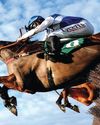
Gemirande provides 24-carat magic
Venetia Williams sparkles again in the December Gold Cup and jockey brothers dead-heat
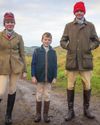
‘Happy hunting, everyone'
“The season for talks, dinners and parties has finally arrived for Tessa Waugh, whose distress about the snags of middle age fades away with some rousing festive spirits
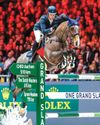
'Monaco deserved this victory
Seemingly destined always to play the bridesmaid’s role, Harrie Smolders’ great partner Monaco finally tops an incidentpacked Rolex grand prix
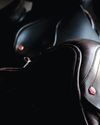
'It had to end sometime'
The closure of beloved Hampshire saddlery Calcutt Sons is a loss to the hunting and wider equestrian worlds, as Octavia Pollock reports
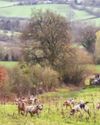
'You couldn't want for more
The Ludlow's peaceful country makes for a day in \"hunting paradise\"
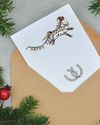
The greatest gift of all
Christmas is fast approaching and while we all like a bit of tinsel, the festive season is also a perfect time for giving to a horse charity. Niki Hinman finds out some of the options
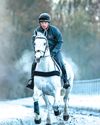
Winter him well
A horse's winter routine can differ dramatically from his summer structure but what’s the knock-on effect? Ellie Hughes asks vets how to optimise routine management for the season
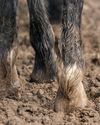
Neat feet
Excellent hoof care is a year-round concern but the winter months present their own problems. Richard Stephenson MRCVS explains the seasonal challenges afoot and how to stay one step ahead
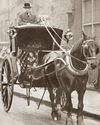
In bygone days
Modern vets have much scientific knowledge behind them, but what about their forebears? Kieran O’Brien MRCVS opens up the world of Victorian vets in London
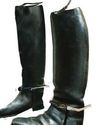
'When I joined the Pony Club it was just two boys and 48 girls'
Pepsi Kohler on being delightfully outnumbered by girls in the Pony Club, a leg-up from a royal and the H&H advert that changed his life